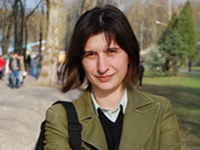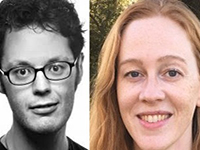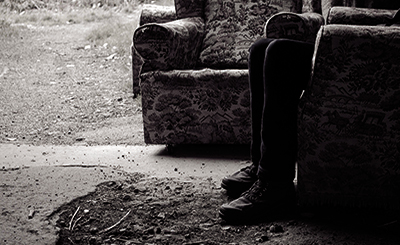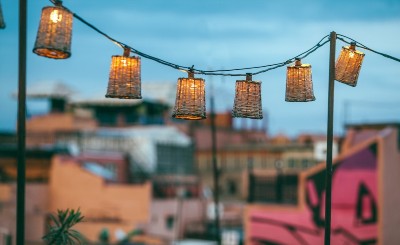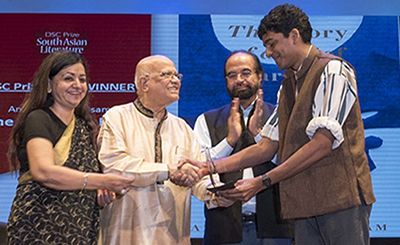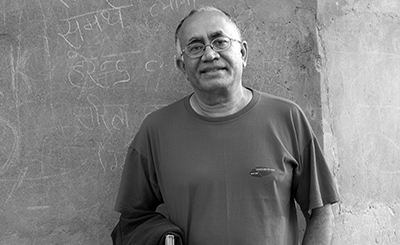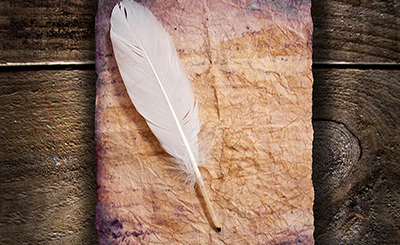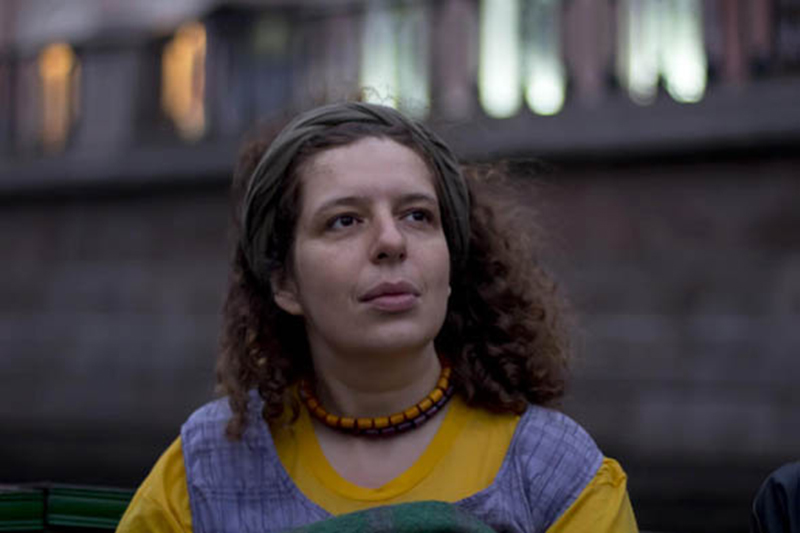
Polina Barskova, a contemporary Russian poet and scholar, lives in New York and Massachussetts
Poems by six Russian poets — Anastasia Afanasieva, Aleksandr Blok, Anna Akhmatova, Polina Barskova, Vladimir Mayakovsky and Daniil Kharms — translated from the Russian into English by Katie Farris and Ilya Kaminsky, as part of World Poetry/Prose Portfolio [WPP], curated by Sudeep Sen
Donate Now
Anastasia Afanasieva
from Cold
And a neighbor-lady the other day lost her glorious dog, Tita.
And now she stands and chews
a clump of snow in her palm.
And a hand without a glove
is red as a shame.
And this I saw, in the morning, walking out of my window.
Walk, hug my torso, as if I know your torso.
Walk as if a hand can console a human torso.
(Step away from me, you idiot, my neighbor-lady yells.)
*
I am unaware of the concept of neighbors
Their faces, strange,
I see in backyards, on the morning walk to work
on the evening walk from work
I see their faces.
(And my body to their eyes, my body, is snow)
Momentary beings, lungs
in snow
who can console snow, lungs?
*
To winter’s narrow splinter
Of a street, to an idiot neighbor
And her idiot dog
We will now announce:
glory.
To quiet and naked branches of poplars
To faces also quiet
In winter’s splinter
Of a wind, say:
glory.
To a voice you don’t hear
The real
Voice, cold, cut from stone in
a bone:
glory.
To no one, unknown
One blue on white
And quiet that splinters
the winter:
glory.
*
from The Plain Sense of Things
1
Of simple things — whisper, whisper — not
touching the ear of another —
believe — in another’s — eardrum.
So February opens, opens —
The time
whistles in a straw
as if a child sips from a glass of sparkling water.
Mouth opens, opens
before each word.
And the “o” of the mouth
is quiet
with want. Wide, and restrained, want.
3
And the snow comes as if no one knows about us
and no one needs us
and there was no
breath, no failure
and no earth that takes us inside.
9
Of simple things — in whisper, whisper.
So gives us to our bodies, time.
So the hands are held in hands, the bodies
drop into us.
So, the flame —
which comes from this evening
which is in our stomachs.
Our stomach, a city where we
are not yet persons. And no longer a breath, us.
And we — we want to go back to that breath, us.
We remember, us.
12
Of simple things whisper, whisper.
Whisper us. Us, time.
Aleksandr Blok
[Night. Street. Lamp. Drugstore.]
Night. Street. Lamp. Drugstore.
Dull and sleazy light.
Live twenty-five years more —
It will be as now. No way out.
You die — and again you begin.
All is repeated as before:
Night. The canal’s icy ripples.
Drugstore. Lamp. Street.
*
Anna Akhmatova
[He liked three things on Earth]
He liked three things on Earth:
white peacocks, evensong,
and old maps of America.
He hated children crying,
And raspberry jam with tea,
and women’s hysterics.
… and he had married me.
*
[When a man dies]
When a man dies,
His portraits change.
Different eyes stare at us, lips
stir in a stranger’s smile.
I noticed this, returning
from a funeral of a poet.
Since then I often checked it,
and my theory has been confirmed.
*
Last Toast
I drink to our ruined house
To the evil of my life
To our loneliness together
And I drink to you—
To the lying lips that have betrayed us,
To the dead-cold eyes,
To the fact that the world is brutal and coarse
To the fact that God did not save us.
*
Polina Barskova
Manuscript Found by Natasha Rostova During the Fire
I will try to live on earth without you.
I will try to live on earth without you.
I will become any object,
I don’t care what —
I will be this speeding train.
This smoke
or a beautiful gay man laughing in the front seat.
A human body is defenseless
on earth.
It’s a piece of fire-wood.
Ocean water hits it.
Lenin puts it on his official shoulder.
And therefore, in order not to suffer, a human spirit
lives
inside the wind and inside the wood and inside the shoulder of a great dictator.
But I will not be water. I will not be a fire.
I will be an eyelash.
A sponge washing your neck-hairs.
Or a verb, an adjective, I will become. Such a word
slightly lights your cheek.
What happened? Nothing.
Something visited? Nothing.
What was there you cannot whisper.
No smoke without fire, they whisper.
I will be a handful of smoke
over this lost city of Moscow.
I will console any man,
I will sleep with any man,
under the army’s traveling horse carriages.
*
from Mad Vatslav’s Diary
I was a coal-miner, water

Poured over my gray hair, my eyelashes.

My sister, alive and laughing,

Shepherded such glorious cows!
I was a soldier, and afraid of living

I did my best to die–but did not manage to stumble

Upon any bad luck. The tsar’s own daughter

Visited my cabin and gave me a magic rope.
I was a slave. My master’s wife

Adored us, the dark, forbidden Slavs.

The green sunrise was the strangest.

In sorrow I danced, swaying, trembling, on wooden porches.
*
Vladimir Mayakovsky
They Don’t Understand at Thing
I walk into the barber’s and whisper:
“Be so kind, comb my ears.”
The smooth barber begins to grow pine needles, —
his face droops, like a pear.
“Red-haired idiot!
Nut!"
He tosses saliva, he yells, he squeals,
and for a lo-o-o-ong
time someone’s head in a crowd
giggles
like an old radish.
*
Daniil Kharms
from Northern Tales
The old man did not know why he went to the woods. Then, came back from the woods and
yelled:
yelled:
The old woman! The old woman!
The old woman fell down. Since then, all rabbits in winter are white.
*
Old Ladies Are Flying
An old lady fell out of the window, because she was too curious. She fell out of the window,
and was smashed to pieces.
and was smashed to pieces.
Another old lady, stared down at the remains of one who was smashed, she stared at them,
out of her excessive curiosity, and also fell out of the window, and smashed.
out of her excessive curiosity, and also fell out of the window, and smashed.
Then the third old lady fell out of the window, then the fourth did, then the fifth.
When the sixth old lady fell out of the window, I got bored watching them and went to
Maltsevitsky Bazaar where, it was announced, they gave woven shawls to the blind.
Maltsevitsky Bazaar where, it was announced, they gave woven shawls to the blind.
*
A Fairytale
There once was a man by the name of Semyonov.
And Semyonov went out for a walk and lost his handkerchief.
And Semyonov started looking for a handkerchief and lost his hat.
And looking for a hat, he lost his jacket.
He began to look for a jacket and lost boots.
— Yes — said Semyonov — this is a loss — I shall go home.
Semyonov began walking home — and he got lost.
— No — said Semyonov — I’d rather sit. And he sat down.
And he sat on a stone, and fell asleep.
*
Symphony No. 2
Anton Mikhailovich spat, said “yuck”, spat again, said “yuck” again, spat again, said “yuck”
again, and closed the door. To hell with him. Le me tell about Ilya Pavlovich.
again, and closed the door. To hell with him. Le me tell about Ilya Pavlovich.
Ilya Pavlovich was born in 1893 in Constantinople. When he was still a small boy, his folks
moved to Petersburg, he graduated from the German School on Kirchnaya Street. Then he
worked in some shop; then he did some other thing; and during the Revolution, he emigrated.
To Hell with him. Let me tell about Anna Ignatievna.
moved to Petersburg, he graduated from the German School on Kirchnaya Street. Then he
worked in some shop; then he did some other thing; and during the Revolution, he emigrated.
To Hell with him. Let me tell about Anna Ignatievna.
Not so easy to talk about Anna Ignatievna. Firstly, I know nothing about her, and secondly, I
have just fallen of my chair, and have forgotten what I was about to tell you. So let me tell you
about myself.
have just fallen of my chair, and have forgotten what I was about to tell you. So let me tell you
about myself.
I am tall, not unintelligent; I dress prudently and with taste; I don’t drink, I don't bet
on horses, but I do like ladies. And ladies don't avoid me. They smile when I go out with them.
Serafima Izmaylovna has been asking me to her place, and Zinaida Yakovlevna implied she
would have liked to see me. Then there is a funny business Marina Petrovna, which I would like
you to consider. Quite an ordinary thing, but a funny business still. Because of me, Marina
Petrovna turned completely bald - bald like a baby's bottom. It happened like this: I went over to
visit Marina Petrovna, and bang! she lost all her hair. And that was that.
on horses, but I do like ladies. And ladies don't avoid me. They smile when I go out with them.
Serafima Izmaylovna has been asking me to her place, and Zinaida Yakovlevna implied she
would have liked to see me. Then there is a funny business Marina Petrovna, which I would like
you to consider. Quite an ordinary thing, but a funny business still. Because of me, Marina
Petrovna turned completely bald - bald like a baby's bottom. It happened like this: I went over to
visit Marina Petrovna, and bang! she lost all her hair. And that was that.
*
Blue Notebook No. 2
Once there lived a redheaded man without eyes and without ears. And he did not have hair,
so they called him redheaded just so they had something to say.
He couldn’t speak, because he had no mouth. He had no nose either.
He didn’t even have arms or legs. He had no stomach, he had no
back, he had no spine, and he had no intestines of any kind. He didn’t have anything. So we
don’t know who it is we speak about.
So it’s best that we don’t talk about him any more.
More from The Byword
Comments
*Comments will be moderated



